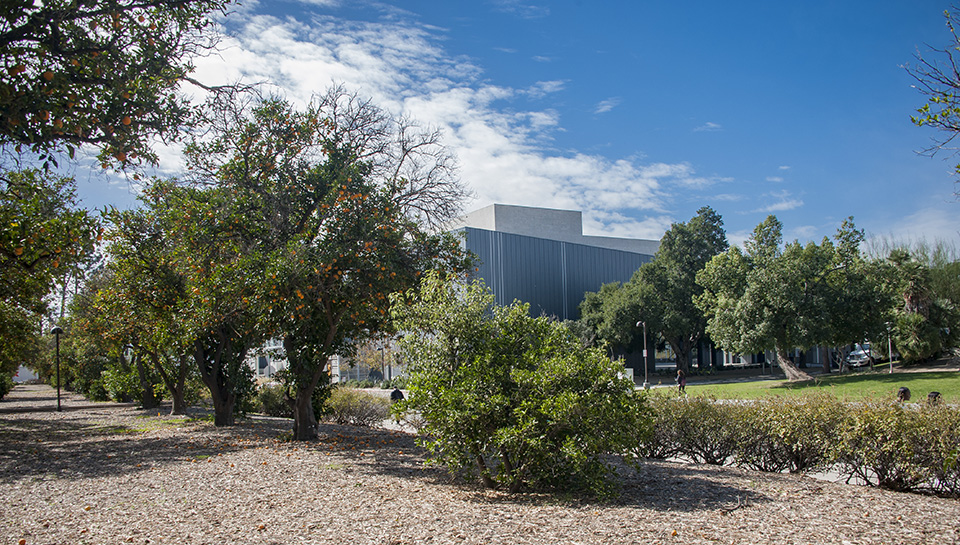CSUN Workshops Give Young People Tools to Advocate in Their Communities

CSUN professor Stevie Ruiz and a team of current and former students have held a series of workshops across Los Angeles designed to give young people the skills they need, including how to collect oral histories, to advocate for the environmental health of their communities. Photo by Lee Choo.
California State University, Northridge Chicana/o studies professor Stevie Ruiz and a team of current and former students have spent this summer training young people how to better serve their communities through environmental justice.
Ruiz and his team have held a series of workshops across Los Angeles designed to give young people the skills they need, including how to collect oral histories, to advocate for the environmental health of their communities. The first two workshops were held last month at the Martin Luther King Recreation Center in South Los Angeles and the Glassell Park Recreation Center. The final workshop, “Environmental Justice Community Action Lab,” is scheduled this Friday, Aug. 9, at CSUN.
“A lot of us have preconceived notions of what an ‘environmentalist’ is,” Ruiz said. “But when you start talking to your parents, grandparents and neighbors — particularly in working-class and immigrant communities — you realize that being an environmentalist means so much more than the image presented in the media.
“Your mother who reuses a plastic bag or containers because it’s a way of saving money is also saving the environment,” he said. “Your immigrant grandfather who carefully plants and cultivates the trees and other plants in his yard because that is what was done ‘at home,’ is also an environmentalist. There may be a reason why he plants what he plants. When you start talking to people about why they do things, the stories behind why they do things, you realize that the term ‘environmentalist’ can apply to people we, particularly young people, never thought of. And it helps them see their communities in a different light.”
Ruiz received a $15,000 grant from California Humanities, an independent nonprofit organization and a partner of the National Endowment for the Humanities, to carry out the project. Joining him are students Tomás Figueroa, a marketing and Chicana/o studies major; Jimmy Ramos, an urban studies and planning and Chicana/o studies major; recent CSUN graduate Quetzalli Enrique, who has a degree in urban studies and planning; and UCLA undergraduate Brian Zamora.
At each workshop, the team introduces the participants, mostly high school and college-age young adults, to environmental justice research and methods. They are provided with a history of environmental justice, social media networks and oral history methods.
“It is our hope to provide young people in communities throughout Los Angeles County with research tools so that they may conduct oral histories about environmental issues in their communities with local leaders, family members and teachers,” Ruiz said.
The oral histories, Ruiz said, are pivotal in helping the young people understand the environmental issues in their own communities, serve as a bridge to connecting between generations and also can provide inspiration when trying to come up with solutions to problems.
He added that the oral histories collected will be part of a public program for an exhibition on environmental justice, the Humanities Action Lab’s “Climates of Inequality: Stories of Environmental Justice,” scheduled to take place in Los Angeles in fall 2020.
“Our young people are going to be facing one of the biggest crises to face mankind, climate change,” Ruiz said. “Hopefully, these workshops will help them see that they do have the ability to make a difference when it comes to the environment, and give them the skills to make the changes needed.”
The Aug. 9 workshop is scheduled to take place from 11 a.m. to 3 p.m. in room 153 of Jerome Richfield Hall at CSUN.

 experience
experience